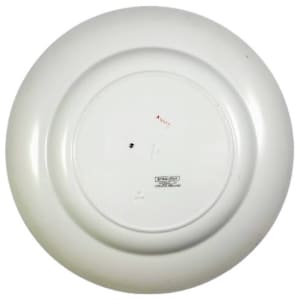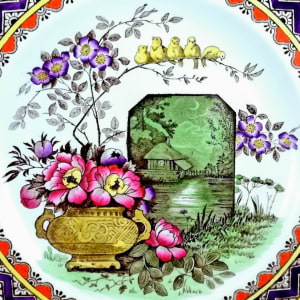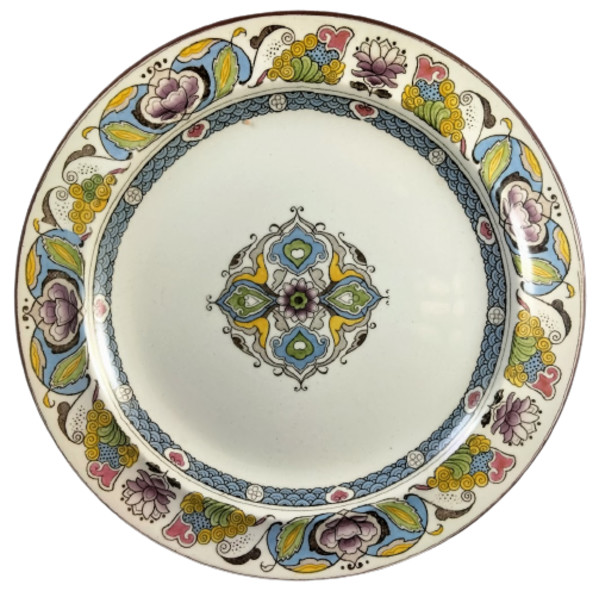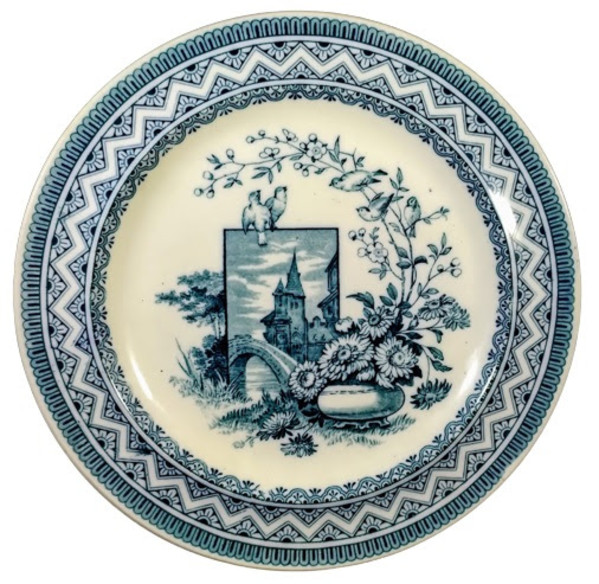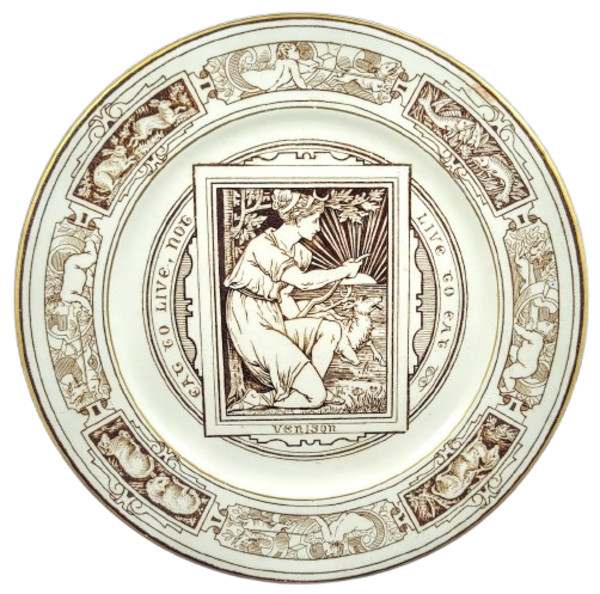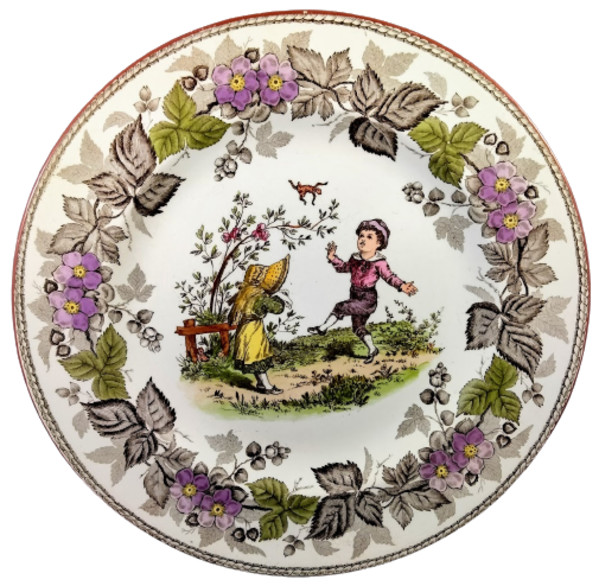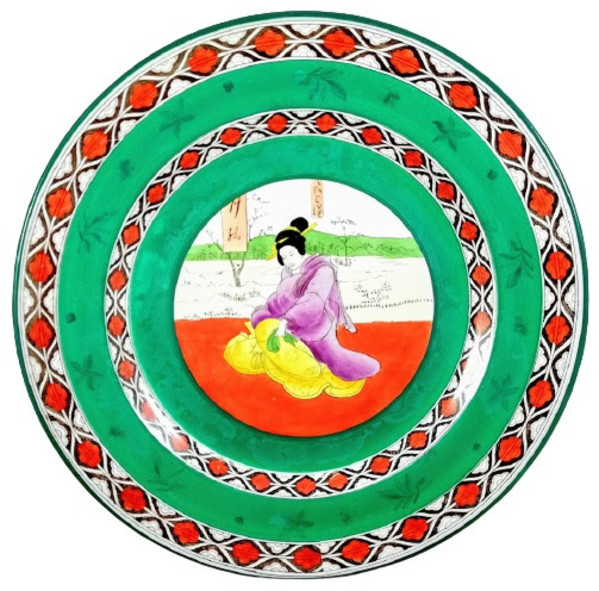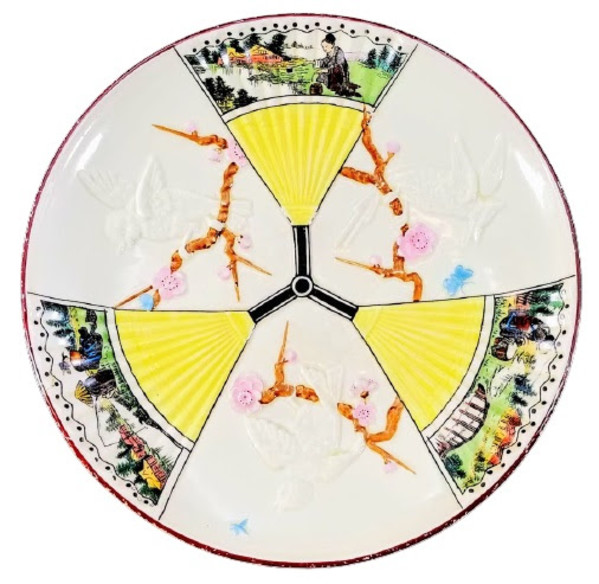- Josiah Wedgwood
- Edinburgh, 1881
- Earthenware
- 10 x 10 in (25.4 x 25.4 cm)
-
Not For Sale
Plate, 10 inches diameter. Black transfer with polychrome clobbering. The impressed sequence of three letters dates this plate to 1891 and the printed mark spells the pattern name with the 'h' at the end. Wedgwood produced the "Edinburg" series in blue in the 1880s and subsequently reprinted it with color. The cartouche in this version of "Edinburg" pattern is a rectangle with the top corners slanted off and features a nighttime scene with a small cottage on the edge of water. To the left of the cartouche is a squat Oriental vase with two handles filled with peonies and long, slender branches of flowers arching over the top of the cartouche. Five small songbirds sit perched on a branch above the cartouche.
Josiah Wedgwood was born in Burslem, Staffordshire, on July 12, 1730, into a family with a long tradition as potters. At the age of nine, after the death of his father, he worked in his family's pottery. In 1759 he set up his own pottery works in Burslem. There he produced a highly durable cream-colored earthenware that so pleased Queen Charlotte that in 1762 she appointed him royal supplier of dinnerware. From the public sale of Queen's Ware, as it came to be known, Wedgwood was able, in 1768, to build near Stoke-on-Trent a village, which he named Etruria, and a second factory equipped with tools and ovens of his own design. At first only ornamental pottery was made in Etruria, but by 1773 Wedgwood had concentrated all his production facilities there. During his long career Wedgwood developed revolutionary ceramic materials, notably basalt and jasperware. After Wedgwood's death in Etruria on January 3, 1795, his descendants carried on the business, which still produces many of his designs.
- Subject Matter: Aesthetic (Cartouche)
- Collections: Aesthetic Transferware, Josiah Wedgwood

